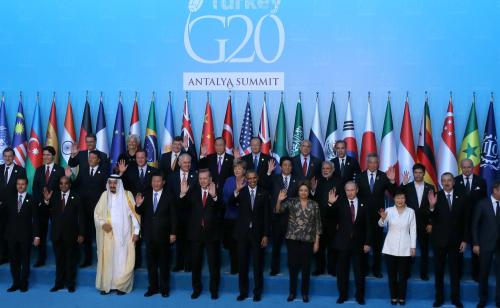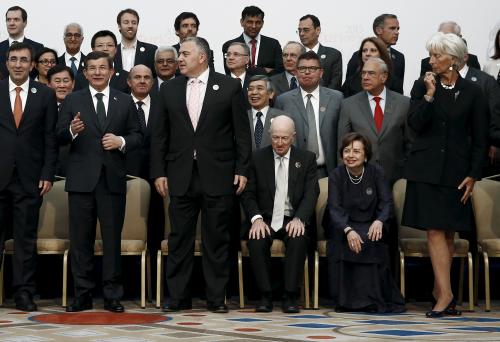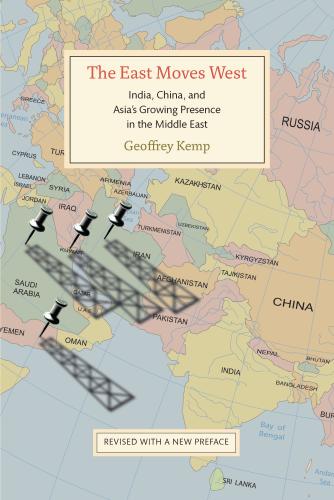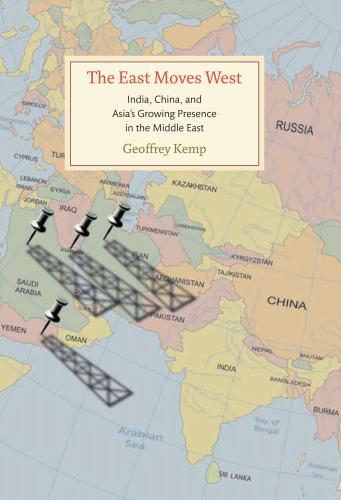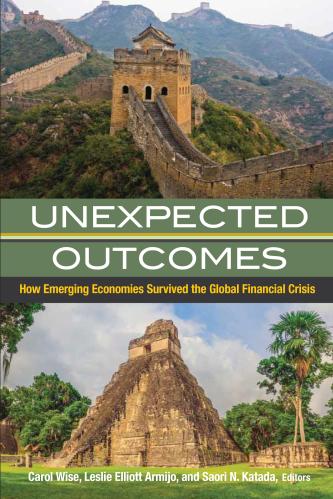Content from the Brookings Institution India Center is now archived. After seven years of an impactful partnership, as of September 11, 2020, Brookings India is now the Centre for Social and Economic Progress, an independent public policy institution based in India.
The G20, which came into being in response to the East Asian crisis in 1997-98, played a key role in responding to the global financial crisis of 2008-09. China’s Presidency of G20 is being looked at with a lot of anticipation. The theme for the G20 summit in September was ‘Towards an Innovative, Invigorated, Interconnected, and Inclusive World Economy’, and the agenda of all the meetings in the run-up to the summit revolves around this theme. China has added another ‘I’, innovation, to the three ‘Is’ of the 2015 Turkish Presidency—inclusiveness, implementation, and investment. Under this framework, members can discuss how to formulate a G20 blueprint for innovative growth and deepen international cooperation in the areas of innovation and digital economy.
However, there are members, like India, which would focus on poverty alleviation and sustainable development besides trade and investment. Against the above backdrop, this note provides an overview of the Chinese Presidency of the G20, with a focus on its agenda and its role in making the G20 a success.
Introduction
The G20 played a key role in responding to the global financial and economic crisis of 2008-09. Its decisive and coordinated actions in ensuring sufficient liquidity in their respective economies, strengthening the capital adequacy of financial institutions, protecting savings, and deposits, addressing regulatory deficiencies, unfreezing credit markets, and working to ensure that international financial institutions provide critical support for the global economy boosted consumer and business confidence and supported the first stages of economic recovery. The G20 continues to focus on measures to support global economic growth, with a strong emphasis on promoting job creation and open trade.
During 2008 to 2010, deliberations in G20 summits focused mainly on building consensus on measures required to stem the global financial crisis. Since the Seoul Summit in November 2010, the agenda has focused on issues such as building the framework for strong, sustainable, and balanced growth; international financial architecture; regulation and supervision of the financial sector; climate change finance; fossil fuel price volatility; clean energy and energy efficiency; green growth; food security; disaster risk management; labour and employment issues; corruption; and trade.
In sum, the G-20’s efforts to date speak to its power as an emerging forum and suggest that the hard work of coordinating policy among the major economies can pay off. Apart from the success that the G20 has achieved by taking joint actions on financial regulation, the G-20 leaders have also helped marshal a collective response to other social and political challenges, like Ebola, hydro-fluorocarbons, and worker safety. The achievements of the G20 over the years can be grouped into four stages:
1. 2009: responding to the historic crisis;
2. 2010: the turn to consolidation;
3. 2011-12: keeping the euro area intact; and
4. 2013-14: addressing weak global growth.
From 2015 onwards, the G20 has focused on ‘national growth strategies’ that would collectively raise G20 GDP by 2 per cent by 2018. These efforts are still a work in progress.
Today, the global economy and international economic cooperation have reached another crucial juncture. As a result, the Federal Reserve’s planned withdrawal of quantitative easing (QE), through which central banks purchase sovereign debt, is currently destabilising India and other emerging countries. Accelerated fiscal adjustment in advanced economies may reduce the pressure on developing currencies, but given the extent that this negatively affects growth in advanced economies, their own faltering recovery would be at greater risk.
The asymmetric impact of fiscal management in advanced economies through the trade and financial channels is another conundrum that emerging market economies (EME) would need to sort out. It is imperative that the G20 nations get together and strengthen the foundation for a global recovery and growth and get over the crisis. The G20 is in a position to seize the historical opportunity presented by technological breakthroughs and a new industrial revolution and usher in a new round of global growth.
Henceforth, the G20 has promised to act with a broader vision and deliver concrete outcomes. It would continue to address critical issues affecting the global economy and endeavour to promote strong, sustainable, and balanced growth. During and after the global financial crisis of 2008, while advanced economies experienced dwindling growth, India was one of the countries that continued to grow. In addition, India has not been a contributor to the global imbalance. By virtue of these, India has emerged as an important member of G20— one able to influence the reshaping of the world economic and financial order and contribute towards it. Thus, it is of utmost importance that India bring to the table its own assessment of the G20 agenda in the light of the global developments and offer considered views on global cooperation without compromising on its own interests.
Download the full report here.
This paper was first published in the World Commerce Review. Like other products of the Brookings Institution India Center, this article is intended to contribute to discussion and stimulate debate on important issues. The views are of the author(s) and discussants(s). Brookings India does not have any institutional views.
The Brookings Institution is committed to quality, independence, and impact.
We are supported by a diverse array of funders. In line with our values and policies, each Brookings publication represents the sole views of its author(s).


